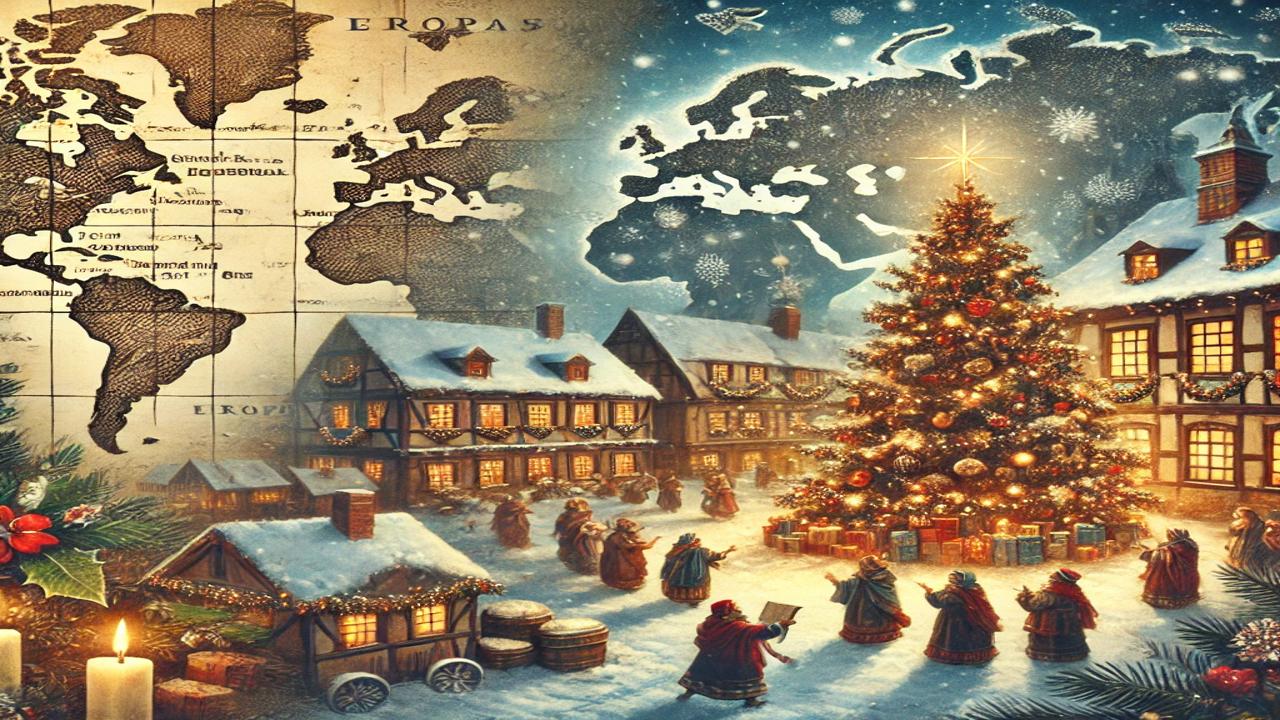The Origins of Christmas: The Process of Spread from Europe to the World and Its Cultural Reflection

Historical Origins of Christmas
Although Christmas is known as the celebration of Jesus' birth in the Christian world, its roots go back much further. December 25, regarded as Jesus' birthdate, was actually influenced by Pagan celebrations in the Roman Empire. The Roman festival Sol Invictus (Unconquered Sun) was held near the winter solstice, believing that the sun regained its strength. These celebrations were adapted by Christians to become Christmas.
Additionally, the winter celebrations and traditions of Northern European people played an important role in shaping Christmas. For example, the German and Scandinavian peoples held various nature and deity celebrations during the long winter nights. These traditions merged with Christianity to form the modern version of Christmas.
The Spread of Christmas in Europe
Initially celebrated in specific regions of Europe, Christmas gradually spread throughout the continent. Christmas became an official holiday in the 4th century with the spread of Christianity in the Roman Empire. However, until the 19th century, especially in Northern Europe, the celebrations were more confined to family events, blending with local traditions.
With the Industrial Revolution, significant social changes took place in Europe. During this period, Christmas evolved into a more widespread celebration. In England, especially with Queen Victoria's husband Prince Albert introducing German traditions to the country, the custom of decorating Christmas trees became popular, and Christmas turned into a more universal celebration. During this time, elements such as Christmas cards and gifts also became popular.
The Spread of Christmas Worldwide
The spread of Christmas from Europe to the rest of the world gained momentum, especially after the 19th century. With globalization, European traditions spread to continents like America, Asia, and Africa. Influenced by American culture, the figure of Santa Claus became recognized worldwide. In the 20th century, through films, television, and advertisements, this figure became a global icon.
The spread of Christmas was greatly influenced by the economic and cultural power of the Western world. The United States played a significant role in making Christmas a global commercial event. Christmas shopping became one of the largest sales periods in the retail industry.
The Cultural Reflections of Christmas
Today, Christmas has become more than just a religious holiday; it has turned into a cultural phenomenon. Various celebration forms and traditions have emerged in different cultures. For instance, in Japan, Christmas is typically celebrated with a romantic dinner with loved ones, while in Mexico, a traditional procession called Posadas is held. Christmas is also considered an important family celebration around the world. The gathering of family members, giving gifts, preparing meals, and other traditions make it more of a social event.
The cultural reflections of Christmas are also evident in the arts, such as cinema, music, and literature. Christmas-themed films, songs, and books released each year help Christmas reach a wider audience. Additionally, Christmas songs and advertisements published during this period have reinforced the commercial aspect of this holiday.










